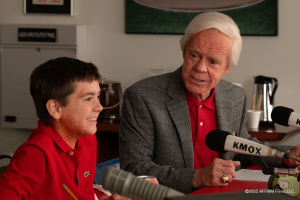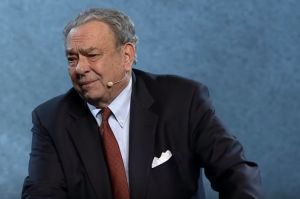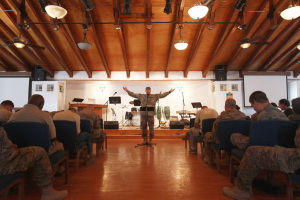PCUSA Bodies Remain Without Quick Solutions
Local governing bodies of the divided Presbyterian Church (U.S.A.) are taking their time when it comes to developing solutions to the fallout of organizational support.
Representatives from PC(USA)'s synods and presbyteries - the denomination's middle governing bodies - recently convened at the first church-wide discussion on the future of its current government structure. While many went in expecting immediate solutions to the financial and organizational crisis they have been facing due to the splitting of several congregations, the meeting's facilitator indicated that "deep change" requires time and "adaptive work."
"We're not after the perfect answer," said the Rev. Gilbert Rendle, according to the Presbyterian News Service. "We're trying to learn our way into this.
"This is the fork in the road for us at the moment."
Before developing any solutions, Rendle emphasized the need to sit together and "ask better questions."
At the meeting – "Communion and Conversation: Beginning a Dialogue on the Future of Middle Governing Bodies" – last week in Albuquerque, N.M., Rendle drew attention to the different structures and challenges within each governing body and said a one-size-fits-all solution would not be helpful.
"Pushing for uniformity in any of this is not helpful. It diminishes our ability to move ahead," he said.
And whether synods and executive presbyteries are needed can't be answered, he said, until you know what you are called to be working on, according to the denomination's news agency.
One dissident PC(USA) member already has the answer. The Rev. Dr. D. Dean Weaver, senior pastor of Memorial Park Presbyterian Church in Pittsburgh and co-moderator of the New Wineskins Association of Churches – a network of Presbyterians discontent with the PC(USA), said earlier that overall, most people do not think synods should continue.
"Most churches don't even know what a synod is," he said. But eliminating synods, Weaver predicted, would take years in a large structure like the PC(USA) – the largest Presbyterian denomination in the United States.
Some at last week's meeting began to agree that it might be helpful to slow down. Others, however, say the problems are more pressing.
"We are living with pressing technical problems that need to be dealt with," said the Rev. Wayne Yost, executive presbyter of Kiskiminetas Presbytery in Yatesboro, Pa., as reported by the Presbyterian News Service. "The adaptive questions will take a lot longer to answer. We have not dealt with any of the technical questions that are facing us right now.”
The Rev. Clifton Kirkpatrick, head of the PC(USA), recently wrote a letter to departing churches urging them to stay. Although only around eight churches have left thus far since last summer's General Assembly which granted greater leeway to the ordination of homosexuals, Kirkpatrick said "any exodus is too many."
Currently, more Presbyterians are considering leaving the denomination and joining a possible new presbytery under the smaller Evangelical Presbyterian Church. Many of the discontent PC(USA) churches are expected to make a vote by October deciding whether to remain or realign with a presbytery that would be named after New Wineskins.
In the meantime, PC(USA)'s middle governing bodies are being encouraged to continue communication and "map out [their] own path through the wilderness," as Rendle said.



























